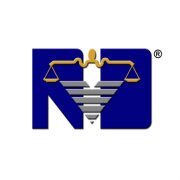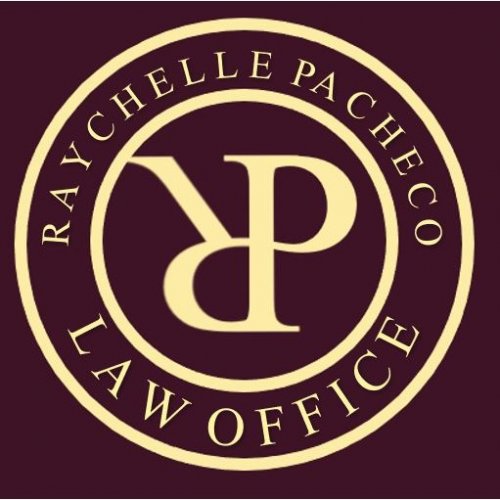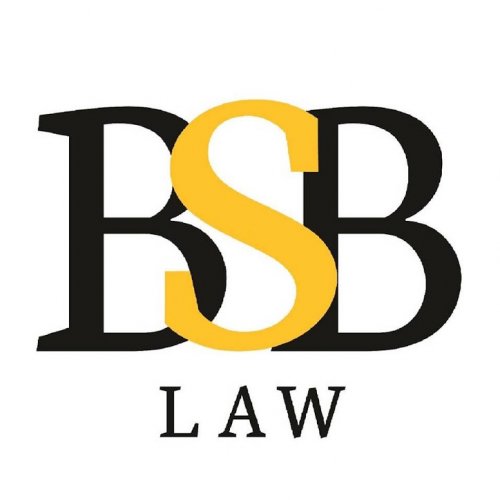Best Trusts Lawyers in Philippines
Share your needs with us, get contacted by law firms.
Free. Takes 2 min.
Or refine your search by selecting a city:
List of the best lawyers in Philippines
Philippines Trusts Legal Questions answered by Lawyers
Browse our 2 legal questions about Trusts in Philippines and read the lawyer answers, or ask your own questions for free.
- Who has the legal right to own a property: the one with the Tax Dec with the name of the deceased father (still not transferred by other claimants for 20 years) or the one with the copy of Deed of Absolute Sale of the property showing that it was sold by
- Who has the legal right to own a property: the one with the Tax Dec with the name of the deceased father (still not transferred by other claimants for 20 years) or the one with the copy of Deed of Absolute Sale of the property showing that it was sold... Read more →
-
Lawyer answer by Recososa Law Firm
Hello: Property ownership questions like this can be emotionally and legally complex—especially when families, old documents, and long periods of inaction are involved. We're here to help you sort this out clearly and lawfully. You mentioned two parties: The one...
Read full answer - Who will be the legal heir upon death of both parents
- Do son in laws has the right to claim a titled lot of their dead father in laws without authorization while the legitimate children still lives?
-
Lawyer answer by Δικηγορικό Γραφείο Ηλία Τζερεμέ - Ilias Tzeremes Law Office
According the Greek Civil Code, there are two systems of succession, testamentary and intestate succession. Intestate succession includes only in bolld relatives, which means that without a last will legally validated sons in law cannot become heirs after their father...
Read full answer
About Trusts Law in Philippines
The concept of trusts in the Philippines is influenced by both Spanish and American legal traditions. In essence, a trust involves one party (the trustor) granting another party (the trustee) the authority to manage assets for the benefit of a third party (the beneficiary). Trusts are used for a variety of purposes, including estate planning, asset protection, and investment management. While the Civil Code of the Philippines, enacted in 1950, governs most of the trust law provisions, there are other relevant pieces of legislation such as the Securities Regulation Code and various banking laws that impact trusts.
Why You May Need a Lawyer
There are several common situations where legal assistance is beneficial in the context of trusts in the Philippines:
- Estate Planning: When planning how assets will be distributed after death, lawyers can assist in establishing a trust that meets specific goals and legal requirements.
- Asset Protection: Legal expertise is critical when setting up trusts aimed at protecting assets from creditors or minimizing tax liabilities.
- Investment Management: Lawyers can help set up investment trusts and ensure they comply with both local and international regulations.
- Dispute Resolution: In the event of disputes between trustees and beneficiaries or other interested parties, legal advice may be necessary to resolve issues effectively.
- Modification or Termination of Trusts: Professional advice is often needed to legally modify or terminate an existing trust.
Local Laws Overview
The regulation of trusts in the Philippines involves several key laws and regulations:
- Civil Code of the Philippines: This serves as the primary legal framework for personal and testamentary trusts.
- Trustee Duties: Trustees are expected to act in good faith and with prudence in managing trust property, as outlined in the Civil Code.
- Bank Regulations: Trusts involving financial institutions are subject to strict regulations under the Bangko Sentral ng Pilipinas (BSP).
- Securities Law: The Securities Regulation Code impacts investment trusts by setting forth rules for the trading of securities and investment activities.
Frequently Asked Questions
What is a trust?
A trust is a legal arrangement where one person or entity holds property for the benefit of another.
How is a trust created in the Philippines?
Generally, trusts are created through a written document that specifies the trust's terms, the trustee's duties, and the beneficiaries.
Can a trust be changed after it is set up?
Yes, a trust can be modified or revoked, depending on its terms and the consent of the involved parties, or through a court order.
What are the duties of a trustee?
Trustees are expected to manage assets diligently, act in the beneficiaries' best interests, and follow the trust's terms.
Are there different types of trusts in the Philippines?
Yes, common types include express trusts, resulting trusts, and constructive trusts, each serving different legal purposes.
How is a trust terminated?
A trust can be terminated by fulfilling its terms, mutual agreement, or judicial order, depending on its nature.
What are the tax implications of establishing a trust?
Tax implications can vary, but generally, income from trusts may be subject to taxation. Consultation with a tax lawyer or accountant is advisable.
Can a foreigner be a beneficiary of a trust in the Philippines?
Yes, foreigners can be beneficiaries, subject to specific legal and regulatory conditions.
What documents are required to set up a trust?
The specific documents depend on the trust type but generally include the trust document and identification of the parties involved.
What happens if a trustee fails to comply with their duties?
Beneficiaries can take legal action against trustees for breach of duty, which could result in the trustee being removed or liable for damages.
Additional Resources
- Philippine Securities and Exchange Commission (SEC): Provides guidance on investment trusts and securities regulation.
- Bangko Sentral ng Pilipinas (BSP): Regulates banking institutions and provides information relevant to financial trusts.
- Integrated Bar of the Philippines (IBP): Offers legal assistance and can refer to experienced trust lawyers.
- Trust Companies and Bank Trust Departments: Often provide detailed guides and consultations on setting up trusts.
Next Steps
If you need legal assistance with trusts, consider taking the following steps:
- Consultation: Schedule a consultation with a lawyer who specializes in trust law to discuss your specific needs.
- Documentation: Prepare all necessary documents, such as identification and any existing estate planning documents, to streamline the process.
- Legal Research: Conduct preliminary research on local trust laws to formulate questions and better understand your legal position.
- Professional Advice: Rely on professional advice to ensure compliance with all relevant laws and regulations throughout the trust establishment process.
Lawzana helps you find the best lawyers and law firms in Philippines through a curated and pre-screened list of qualified legal professionals. Our platform offers rankings and detailed profiles of attorneys and law firms, allowing you to compare based on practice areas, including Trusts, experience, and client feedback.
Each profile includes a description of the firm's areas of practice, client reviews, team members and partners, year of establishment, spoken languages, office locations, contact information, social media presence, and any published articles or resources. Most firms on our platform speak English and are experienced in both local and international legal matters.
Get a quote from top-rated law firms in Philippines — quickly, securely, and without unnecessary hassle.
Disclaimer:
The information provided on this page is for general informational purposes only and does not constitute legal advice. While we strive to ensure the accuracy and relevance of the content, legal information may change over time, and interpretations of the law can vary. You should always consult with a qualified legal professional for advice specific to your situation.
We disclaim all liability for actions taken or not taken based on the content of this page. If you believe any information is incorrect or outdated, please contact us, and we will review and update it where appropriate.
Browse trusts law firms by city in Philippines
Refine your search by selecting a city.

















